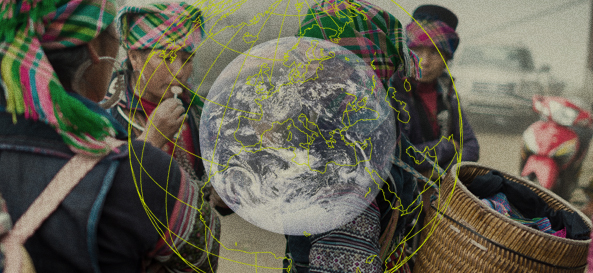
A young woman in India, excited about her new baby, is pressured into taking a sex determination test. When her husband finds out she is pregnant with a girl, he forces her to get an abortion. A continent away in Africa, another young girl finds herself in labor, ready to welcome her first child into the world. Although the delivery is becoming extraordinarily long and she is in extraordinary pain, the hospital—too far away and far too expensive—is not an option. During labor, she develops an obstetric fistula, a tear in the tissues around her bladder and as a result, she cannot control the leakage of urine from her body. Her older husband, shamed by her condition, sends her away, and she is made to live in a hut outside of her community, alone and ostracized.
Tragically, there are millions of women and girls facing similar, horrific assaults on their God-given dignity, particularly in the developing world.
The numbers alone are startling. Every day, over 900 women die of preventable complications from pregnancy and childbirth. More than half of the 33.3 million people living with HIV around the world are women, and over 75 percent of these women live in sub-Saharan Africa where their children are at risk of contracting HIV as well. Violence against women remains pervasive. And we are all familiar with the tragedy of sex-selective abortion or gendercide, which the Economist described as the 100 million missing girls. We have not even begun to account for girls and women who die from lack of medical care, complications from surrogate pregnancies or selling their eggs to be harvested.
Compassion has stirred many into action. And for Christians who value human life and dignity, these are not stories we can ignore. Every individual is valuable and deserving of justice, not because of what they can contribute to a society or what caste they were born into, but because of whose image they bear.
As followers of the God who commands us to care for widows and orphans (Deut.10:18) and who chose women to be the first eye-witnesses of the resurrection (Luke 24), upholding the dignity of women is part of displaying an authentic witness of the heart of God to the world.
In the Gospels, we see Jesus, the physical manifestation of the compassion of God, expressing a particular love for women as equal bearers of His image in a culture that did not value them. Following Jesus means washing the feet of our neighbors, who He defined for us as people not necessarily “like us” in culture or status (Luke 10:25-27). Following Jesus means seeking to imitate His tender heart toward those in need, including His gentle care for their physical needs (Luke 8:40-48).
But first, we need to reframe our assumptions about global injustice to women. One of which is our American tendency to view abortion through the lens of “rights” rather than human dignity. As a consequence, our political conversation often pits the rights of the unborn against the rights of the mother. In some circles, “global women’s health” feels like code for “increased access to abortion,” and in others, pro-life advocates are branded as “anti-woman.”
In caring for the health needs of our neighbors around the world, we have a unique opportunity to reverse this cycle. When we care for women worldwide with human dignity, it gives increased credibility to our efforts to protect the unborn. And our efforts to stop practices such as sex-selective abortion reinforce our efforts to improve the lives of women and girls around the world.
So if you are ready to respond to God’s call to care for the health of women and girls around the world, what can you do?
In the murky world of public health, it can be difficult to sort out who is operating according to Christian principles. It can also be tricky to figure out concrete ways to make a difference beyond the important step of donating needed financial resources. Further complicating matters, small NGOs may lack access to needed resources, including expertise on best practices.
Here’s a few trusted resources to help you get information, and get involved:
* On International Women’s Day (March 8, 2013), The Center for Bioethics & Human Dignity is launching Her Dignity Network to connect resources, individuals and organizations around specific health issues faced by women and girls worldwide. Her Dignity Network offers individuals concrete ways to get involved for each justice issue.
* If you’re interested in not just advocating but going yourself, Hope for a Healthier Humanity trains medical professionals in under-developed Central American countries where women are at health risks.
* World Relief partners with the local church around the world, using community-based approaches integrating poverty relief with maternal and child health initiatives in their Stand for Women campaign.
However you choose to get involved, imagine this: If we care for half the world, we can change half the world.






















